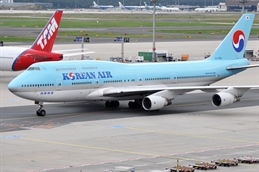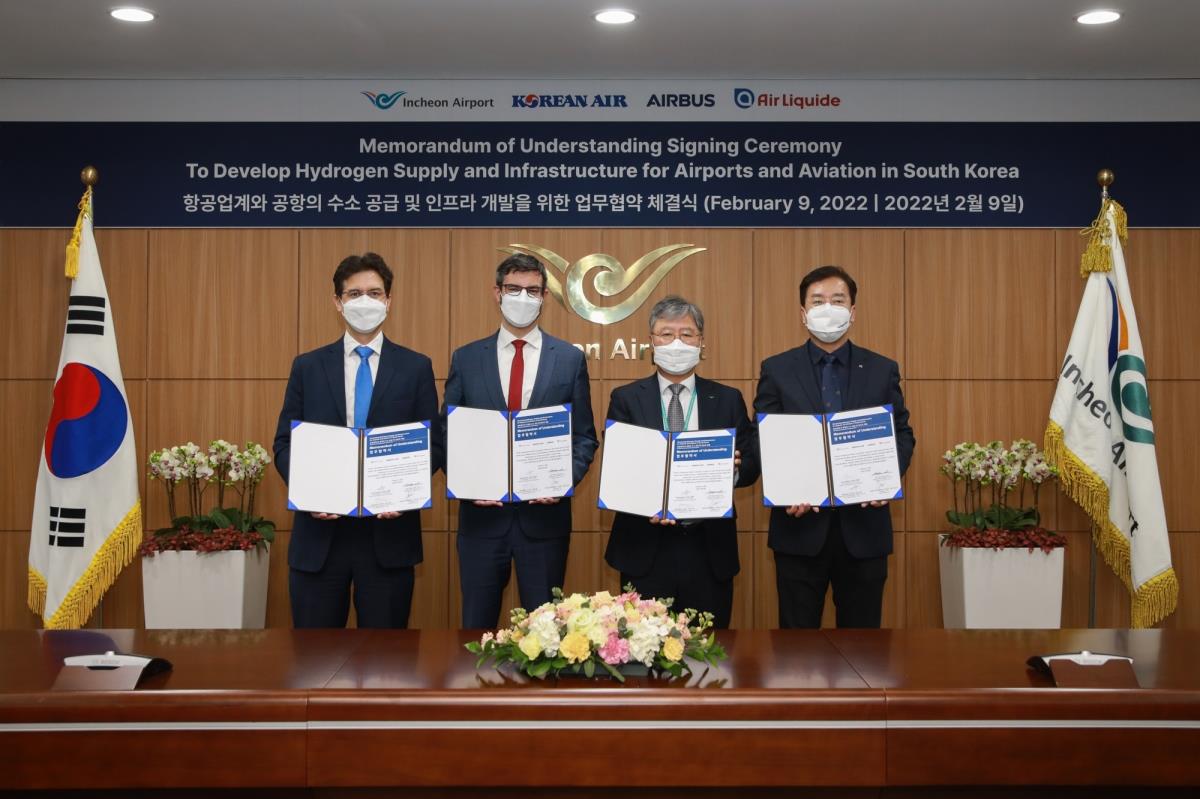
Korean Air announced that it is leading the development of the Korean hydrogen fuel insfrastructure as the aviation industry pursues carbon-neutral aviation.
In a statement, Korean Air said it signed a Memorandum of Understanding (MOU) on February 9 with Incheon International Airport Corporation (IIAC), Airbus, and Air Liquide to cooperate on supplying aviation hydrogen fuel and developing relevant infrastructure.
"The MOU paves way for the stakeholders to actively cooperate in various fields, from developing hydrogen infrastructure at airports, establishing a roadmap for introducing hydrogen, to ground handling logistics," the carrier said.
Korean Air added that it will focus its expertise on overall operational activities, including ground handling planning, maintenance and flight operations, and IIAC on research and development of airport facilities.
Meanwhile, Airbus and Air Liquide will analyze domestic demand for hydrogen-powered aircraft, and establish a roadmap for the introduction of hydrogen fuel, respectively.

"This MOU will be a starting point for the Korean domestic aviation industry to systemize a hydrogen supply chain system and infrastructure development, where the introduction of hydrogen as an alternative fuel has been slow in relative comparison to other industries," said Soo Keun Lee, executive vice president and chief safety & operation officer, Korean Air.
At the 2021 International Air Transport Association (IATA) Annual General Meeting (AGM), member airlines have approved a resolution for the global air transport industry to achieve net-zero carbon emissions by 2050.
Korean Air it has since implemented various carbon reduction measures.
Last year, Korean Air signed an MOU with Hyundai Oilbank to manufacture and promote the application of sustainable aviation fuel (SAF) and also partnered with SK Energy to purchase carbon-neutral jet fuel to be used on the Korean domestic network.
The airline's introduction of Airbus A220-300 to its fleet will also reduce carbon emission per seat by 25% compared to existing models of similar capacity, demonstrating its commitment to environmental awareness.
Korean Air said it is also committed to the development of the Korean domestic hydrogen energy sector.



